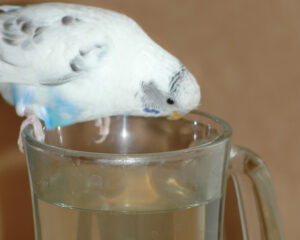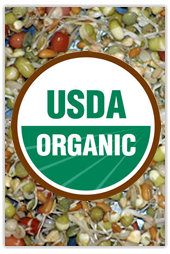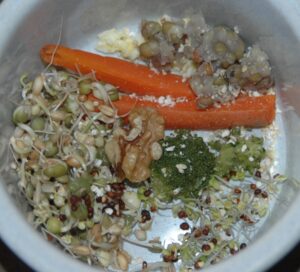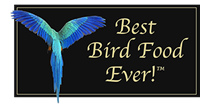Morris Animal Foundation
Cancer Prevention Tips—
They Need to Add 3 More
.
The email from the Morris Animal Foundation that I received this morning shed light on the fact that cancer is the leading cause of death in companion animals, with the primary focus on dogs and cats.
.
While I have only encountered one case of cancer in my cats over the years, I have unfortunately experienced several cases of cancer in my parrots and finches. However, since implementing my Balanced Food Plan for Parrots (larger than 50 grams) and my Budgie Balanced Food Plan, and filtering our water using the reverse osmosis (RO) process, the occurrence of cancer has disappeared.
.
Before I delve into the three additional tips that I believe should be included in the Tip Sheet from the Morris Animal Foundation, let’s explore the insights shared by their experts.
.
While the Morris Animal Foundation‘s 12 Tips offer valuable suggestions, I find that my top three tips align closely with what I have learned from my personal experiences with my animals.
.
1. AVOID SECOND-HAND SMOKE
Does your pet live in a household with smokers? Evidence suggests that cancer risk is increased in pets exposed to environmental tobacco. Keep your home a smoke-free zone.
2. MONITOR YOUR PET’S WEIGHT
Research suggests that obesity is a risk factor for cancer. Feeding a poor quality or imbalanced diet also may be linked to an increase in cancer risk. (More on what to do about this further down the page).
3. BECOME AN EXPERT ON YOUR PET’S BREED
Did you know that certain breeds of dogs and cats are prone to different diseases, including cancer? Become an expert on the diseases that are common in your pet’s breed.
4. HAVE REGULAR VETERINARY CHECKUPS
Would you see your doctor once every five years for a checkup? Skipping a yearly checkup with your pet would be similar. Regular checkups allow your veterinarian to perform a complete physical examination, which can identify abnormalities as well as establish a baseline that can be used for later comparisons.
5. AVOID LONG-TERM EXPOSURE TO SUNLIGHT
As in people, light skin pigmentation combined with lots of time outside, can increase the risk for some cancers. Make sure your pet can get out of the sun, and avoid prolonged exposure to sunlight when it is strongest, around midday.
6. AVOID EXPOSURE TO ASBESTOS
Just like people, there are reports of cancer related to asbestos exposure in animals. If removing this product from a home, keep pets away from the area for the duration of the process.
7. ADD VEGETABLES TO THEIR DIET
At least one provocative study has suggested that adding vegetables may help decrease cancer risk.
8. EXAMINE YOUR PET ONCE A MONTH Look in your pet’s mouth and ears, run your hands along their body and note any changes once a month; early detection is the best way to treat many diseases, including cancer.
9. AVOID EXPOSURE TO LAWN CHEMICALS
Keep your pet away from applied lawn products when possible. There is some evidence for an increased cancer risk in pets exposed to applied lawn chemicals.
10. EXERCISE YOUR PET REGULARLY
Get them moving. Regular exercise will keep your pet mentally stimulated, in shape and helps lower their risk of health problems.
11. AVOID EXPOSURE TO PAINTS & SOLVENTS
One recently published study suggests a possible association between exposure to these chemicals and cancer. Try to keep your pets outside or in another room when using these substances.
12. GET TO KNOW YOUR PET
Behavior changes are often a signal that a pet isn’t feeling well. Watch your pet, learn their likes and dislikes, and their sleeping and eating habits. A change in routine or demeanor could be an early sign of disease.
.
MY 3 ADDED GUIDE LINES
In my list of preventing cancer
in the people and animals that I love
these 3 are at the very top
.
With the ever-increasing risk of cancer in our pets and ourselves, it is crucial to take proactive steps to prevent this devastating disease. By implementing these additional guidelines below, we can further reduce the risk and provide our beloved animal companions with a healthier and happier life.
.
1. FILTER ALL WATER USED FOR DRINKING AND COOKING
In Chapter 6 of my book, “Polly Want a Sprout?”, titled “Why You Need Good Quality Water,” I extensively discuss the detrimental effects of toxic and polluted water on our health, including its role in cancer development. Pages 101, 102, 103, 104, 105, 106, and 110 shed light on the importance of filtering water and the necessity of re-mineralizing water purified using reverse osmosis (RO) filters. It is crucial to ensure that your chosen water filter effectively eliminates all toxic substances, pesticides, pharmaceutical drugs, and cancer-causing agents. Utilizing a reverse osmosis system and re-mineralizing the purified water, as detailed on page 146 of my book, guarantees the removal of harmful elements.
.

BUDGIE DRINKING HIS SPECIAL FILTERED WATER.
..
2. BUY AND FEED ONLY ORGANICALLY GROWN FOODS
This topic is so essential to good health that in “Polly Want a Sprout?”, I dedicated a full chapter to this topic. In Chapter 8, ‘Organic or Commercial Foods, Is There a Difference?’, I go into the details of the disease-causing problems directly linked to feeding pesticide ridden commercially grown foods. And on pages 152, 153, 163, 164, and 186, I cite published papers that document the cancer causing problems of feeding and eating non-organic foods.
.
The significance of this topic is so profound that I dedicated an entire chapter, ‘Organic vs. Commercial Foods, Is There a Difference?’. Chapter 8, in “Polly Want a Sprout?”. Here I delve into the specifics of disease-causing problems associated with feeding commercially grown foods contaminated with pesticides. Pages 152, 153, 163, 164, and 186 of my book cite published papers that highlight the cancer-causing risks of consuming non-organic foods.

USDA Organic, BBFE Sprouts
.
SUPPORT YOUR PARROT’S GOOD HEALTH
SHOP OUR STORE NOW
.
In addition to the Morris Animal Foundation‘s suggestion of adding vegetables to your pet’s diet, (Tip #7), I recommend that these vegetables be certified organic foods. Moreover, combining these vegetables with specific foods that promote the production of the MASTER ANTIOXIDANT Glutathione amplifies the health benefits. Glutathione, a vital antioxidant, can only be produced in the body when all the necessary nutrients for its creation are provided.
.
A few people have emailed me, explaining that buying 100% organic is not in their budget, or not available where they live. In answering this concern in my book, “The Power of Nurturing with Food, The First Balanced Food Plan for Parrots (larger than 50 grams)”, I have included a copy of one of my articles (previously published in Parrots magazine) that explains the best way to clean non-organic produce. This article, ‘Cleaning Non-organic Produce’, is on page 87 of this book. “The Power of Nurturing with Food”, is also available in a PDF format.
.
For those concerned about the higher cost of being 100% organic foods, I address this in my book, “The Power of Nurturing with Food, The First Balanced Food Plan for Parrots (larger than 50 grams)”. It includes an article, previously published in Parrots magazine, titled ‘Cleaning Non-organic Produce’ (on page 87), explaining the best methods to clean non-organic produce. Additionally, “The Power of Nurturing with Food” is available in paperback or PDF format.
3. FOLLOW A BALANCED FOOD PLAN SPECIFICALLY FOR YOUR PET
In my book, “The Power of Nurturing with Food, The First Balanced Food Plan for Parrots (larger than 50 grams)”, I provide essential information for feeding a fully Balanced Food Plan for parrots. All the work has been done for you making meal prep simple and easy.
.

.
This book provides you with the basics for providing a fully Balanced Food Plan for any parrot larger than 50 grams. “The Power of Nurturing with Food, The First Balanced Food Plan for Parrots (larger than 50 grams)” also includes several of my original articles previously published in Parrots magazine. In these you’ll learn about the benefits of feeding and teaching your birds to enjoy broccoli, pomegranates, walnuts, spinach, and rosehips, After reading these articles you will have a better idea of what you are trying to achieve.
.
FOR BUDGIES
You can get started with my two NEW PRODUCTS Budgie Specialty Bundle. These two NEW PRODUCTS, Balanced Budgie Sprouting Blend and Balanced Budgie Cooking MASH Blend, are ONLY available from our online store.
These two NEW BUDGIE PRODUCTS, the Budgie Specialty Bundle, serve as an excellent starting point for balanced budgie nutrition. Stay tuned for my upcoming “Budgie Balanced Food Plan”, available in paperback and PDF format.
.
FOR DOGS AND CATS
Personalized nutrition consultations are available. During these consultations, you will receive a personalized balanced food plan recipe tailored to your pet’s unique needs and health requirements. Additionally, if desired, I can provide a list of recommended nutritional supplements to further support your dog or cat’s well-being.
.
It’s important to note that the Morris Animal Foundation‘s Tip #2 emphasizes the link between feeding a poor quality or imbalanced diet and increased cancer risk. I would like to expand on this by highlighting that most prepared dog and cat foods, even those from expensive premium brands, do not provide a complete balance of essential nutrients necessary for optimal health. In my balanced food plans and recipes, I incorporate foods that specifically promote the production of glutathione, the MASTER ANTIOXIDANT, within your pet’s body. This unique feature is only available through my fully balanced recipes tailored to your pet’s specific needs.
.
If you opt for a one-hour consultation, we can create a comprehensive balanced food plan for your dog or cat. The additional supplement program would incur an extra fee, should you choose to include it.
By implementing these three additional guidelines in conjunction with the Morris Animal Foundation‘s tips, you can take significant strides towards preventing cancer and ensuring the well-being of your beloved animals.
.
REMEMBER, PREVENTION IS KEY
And providing your pets with a balanced food plan, clean water, and organic nutrition sets the foundation for a vibrant and cancer-free life.
.
If you have any further questions or would like to schedule a consultation, please feel free to reach out to me. I’m here to support you and the animals you love on their journey to optimal health and well-being.
Email me at lesliebbfe@gmail.com
![]()






